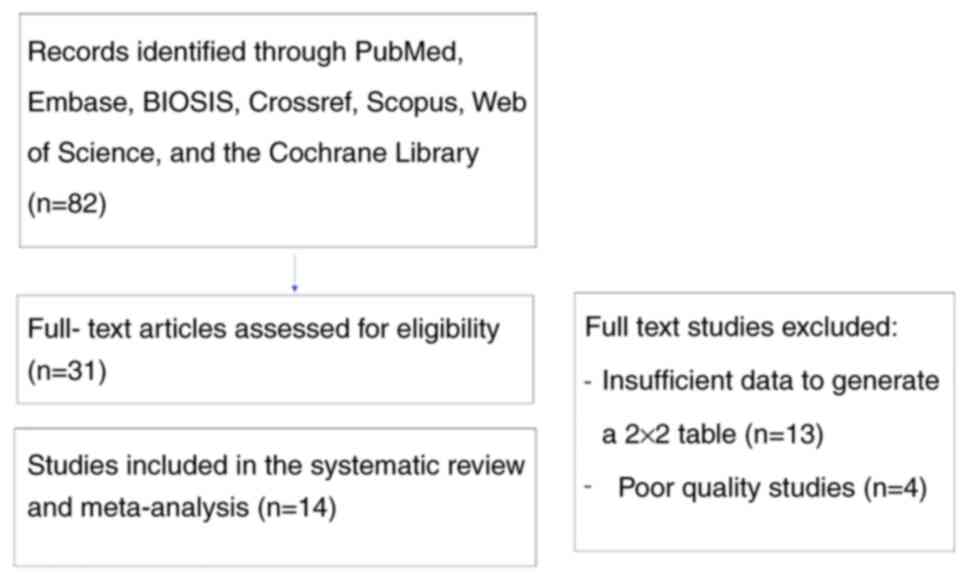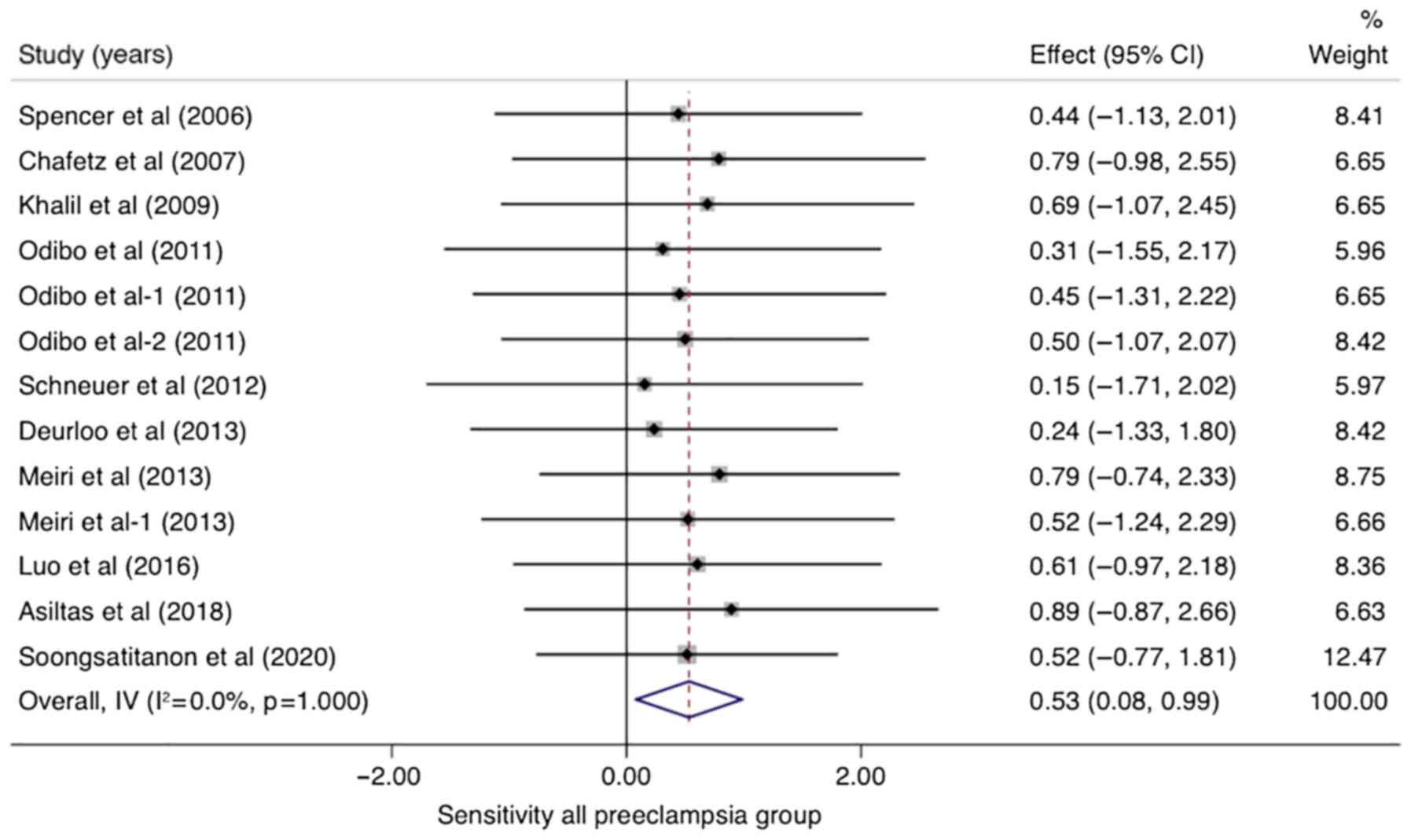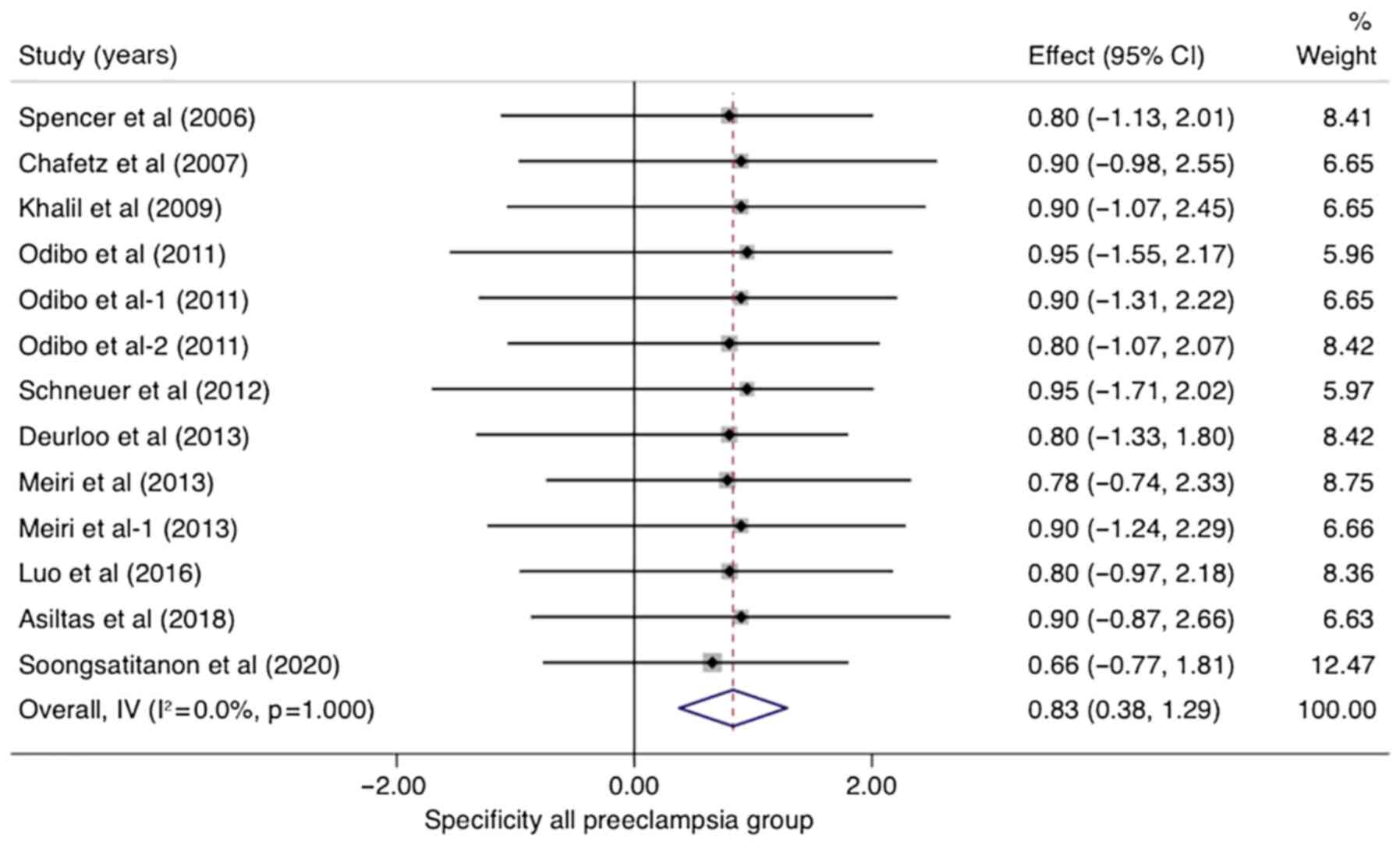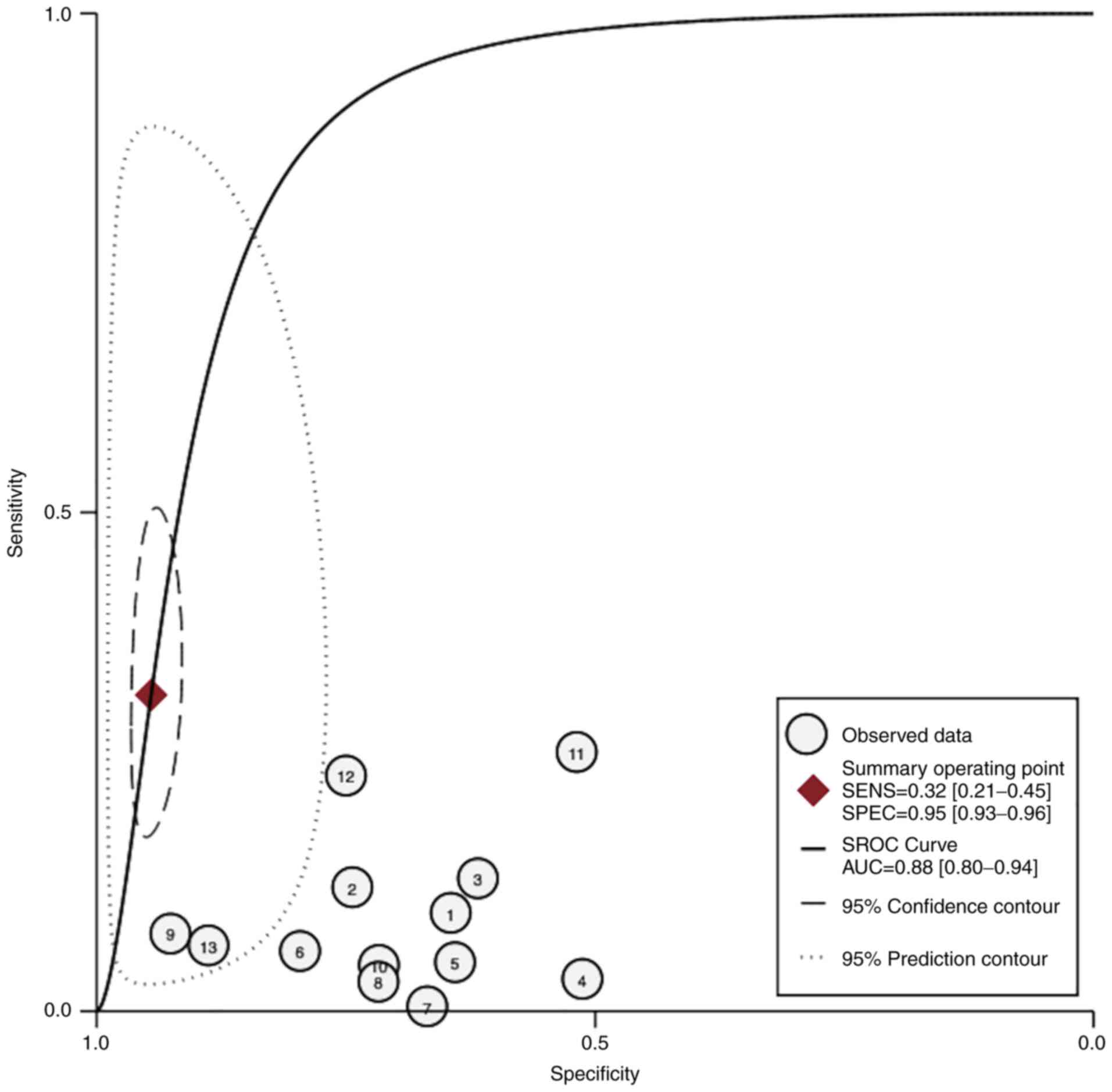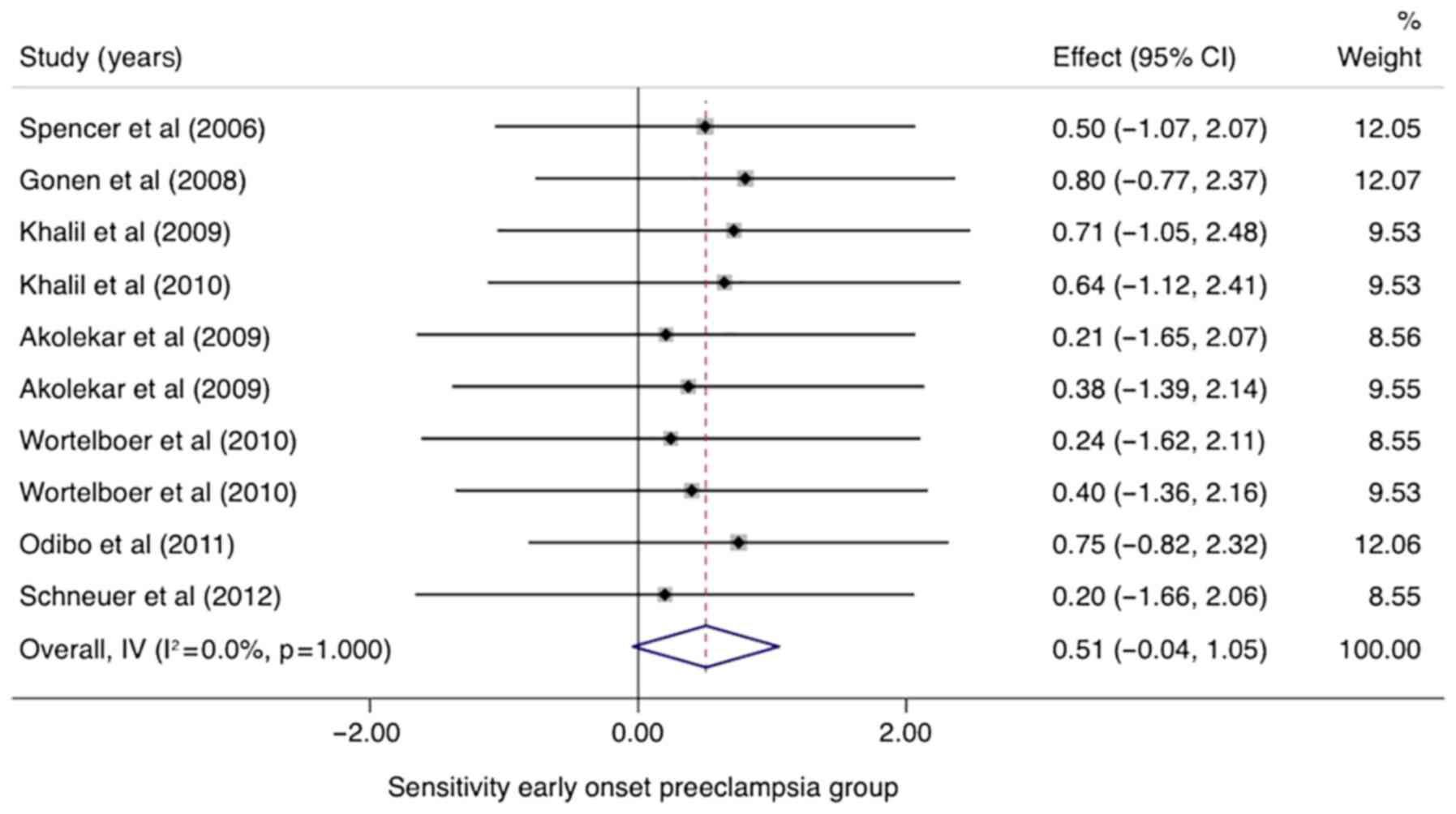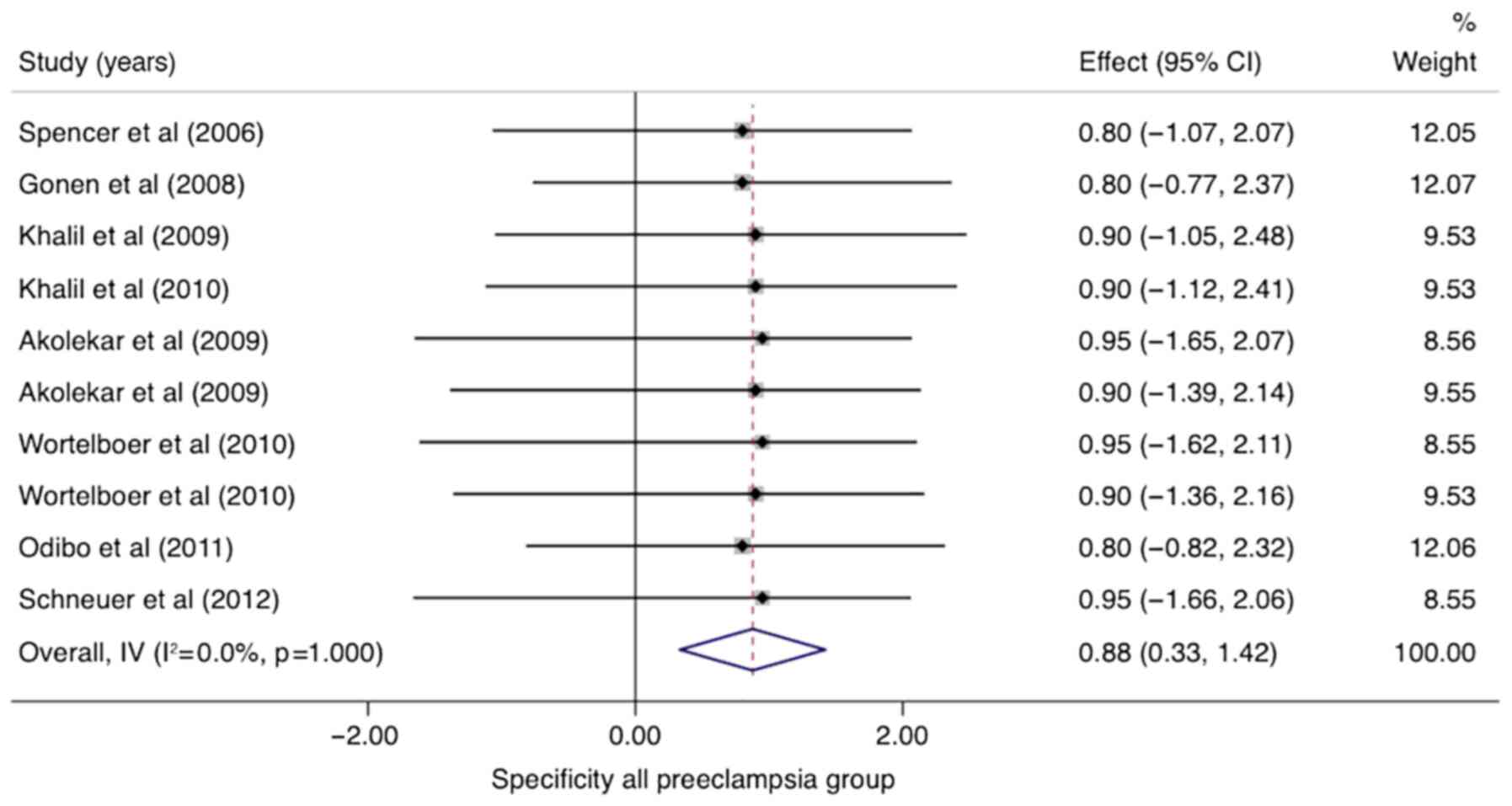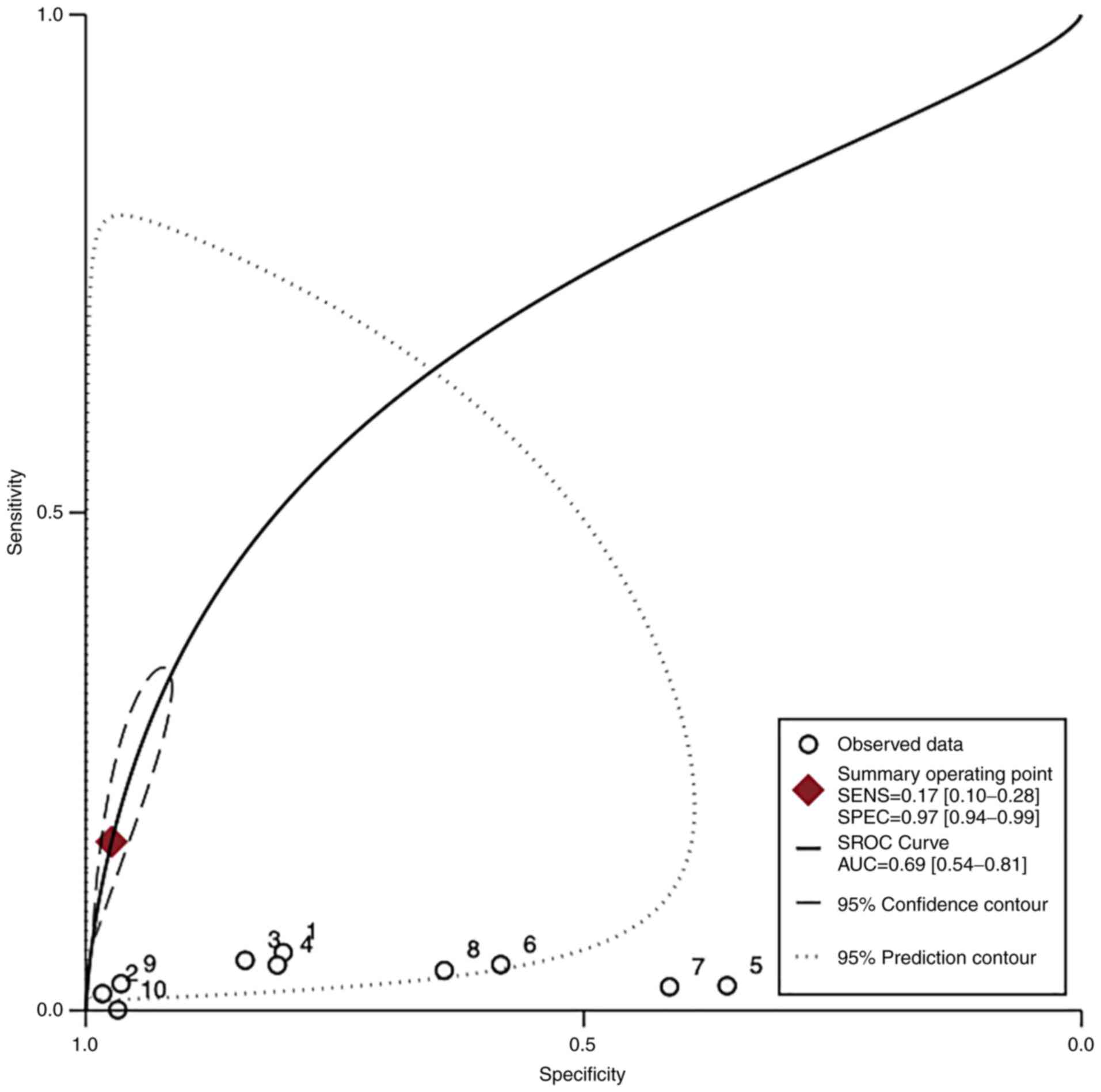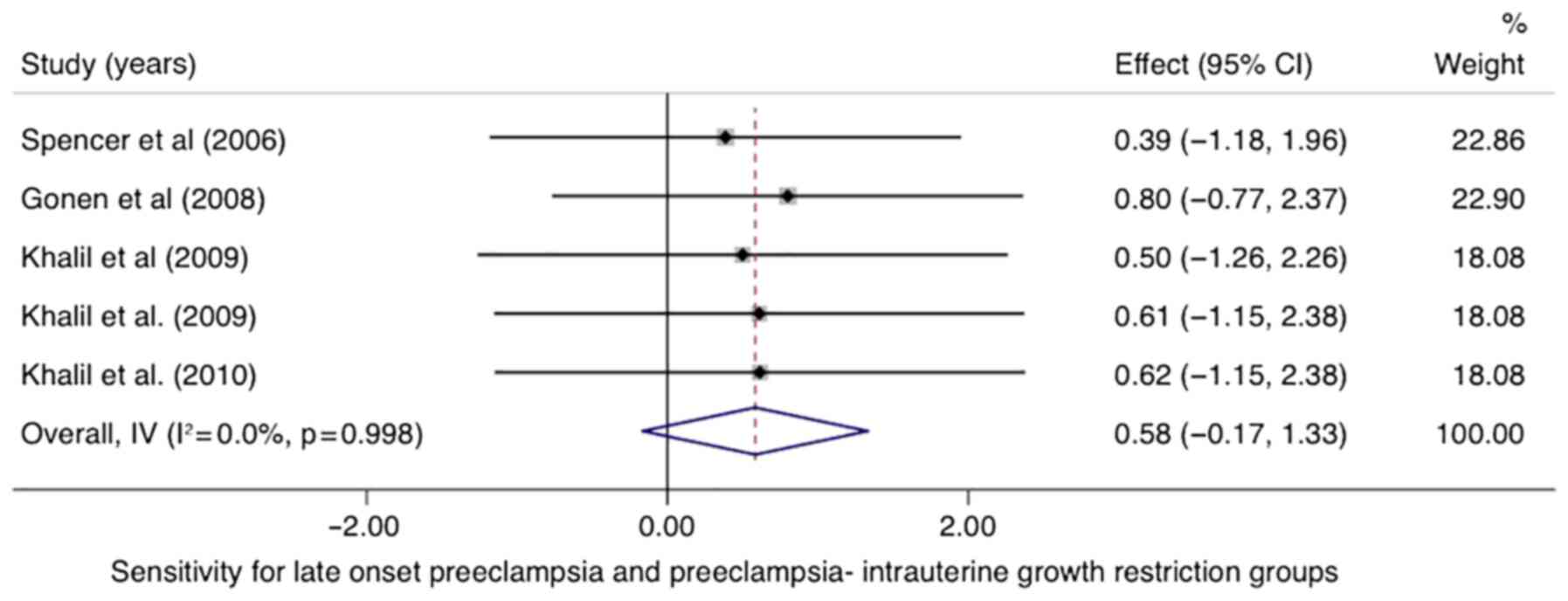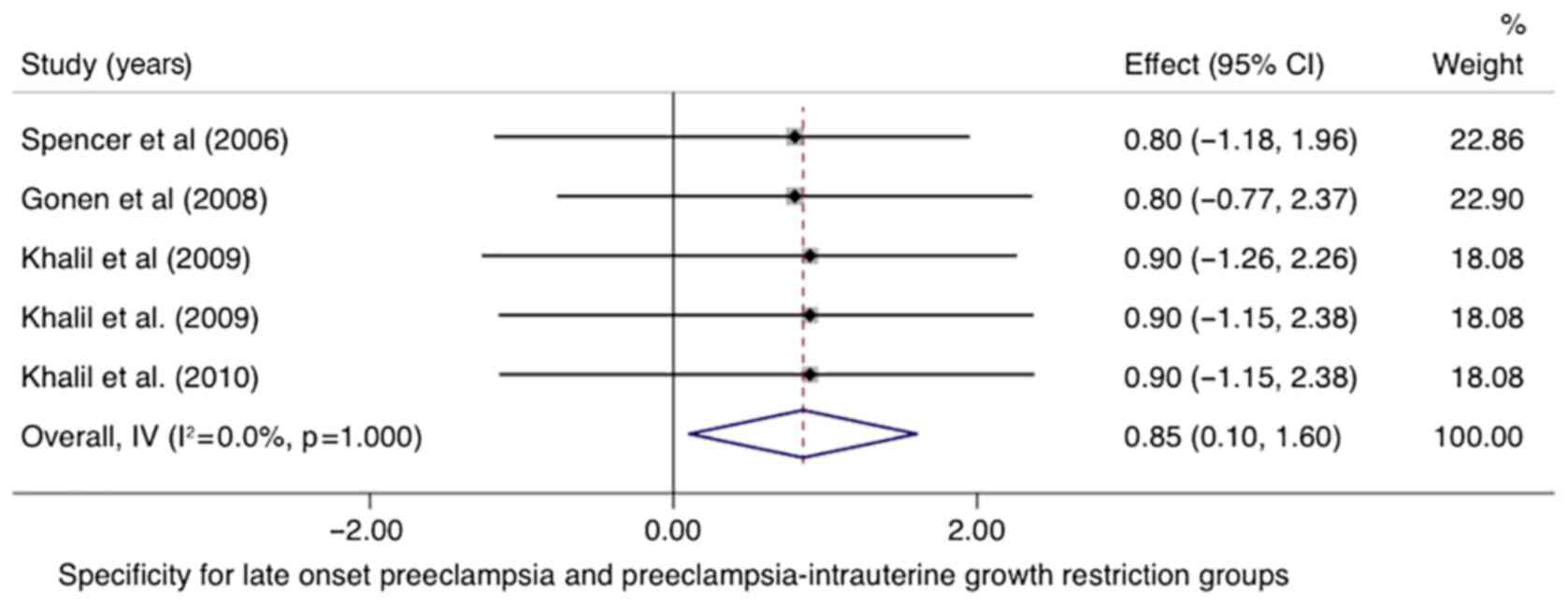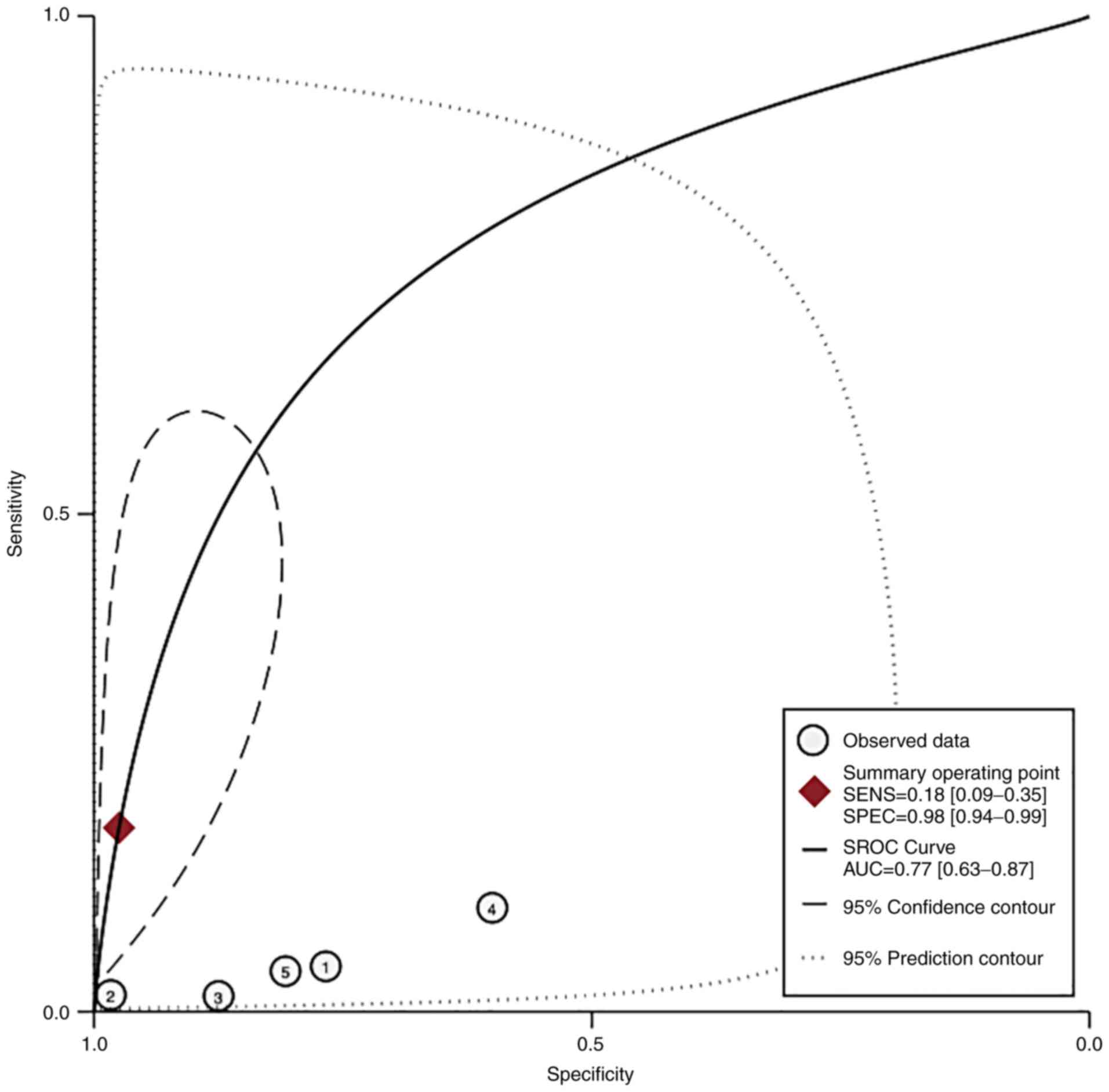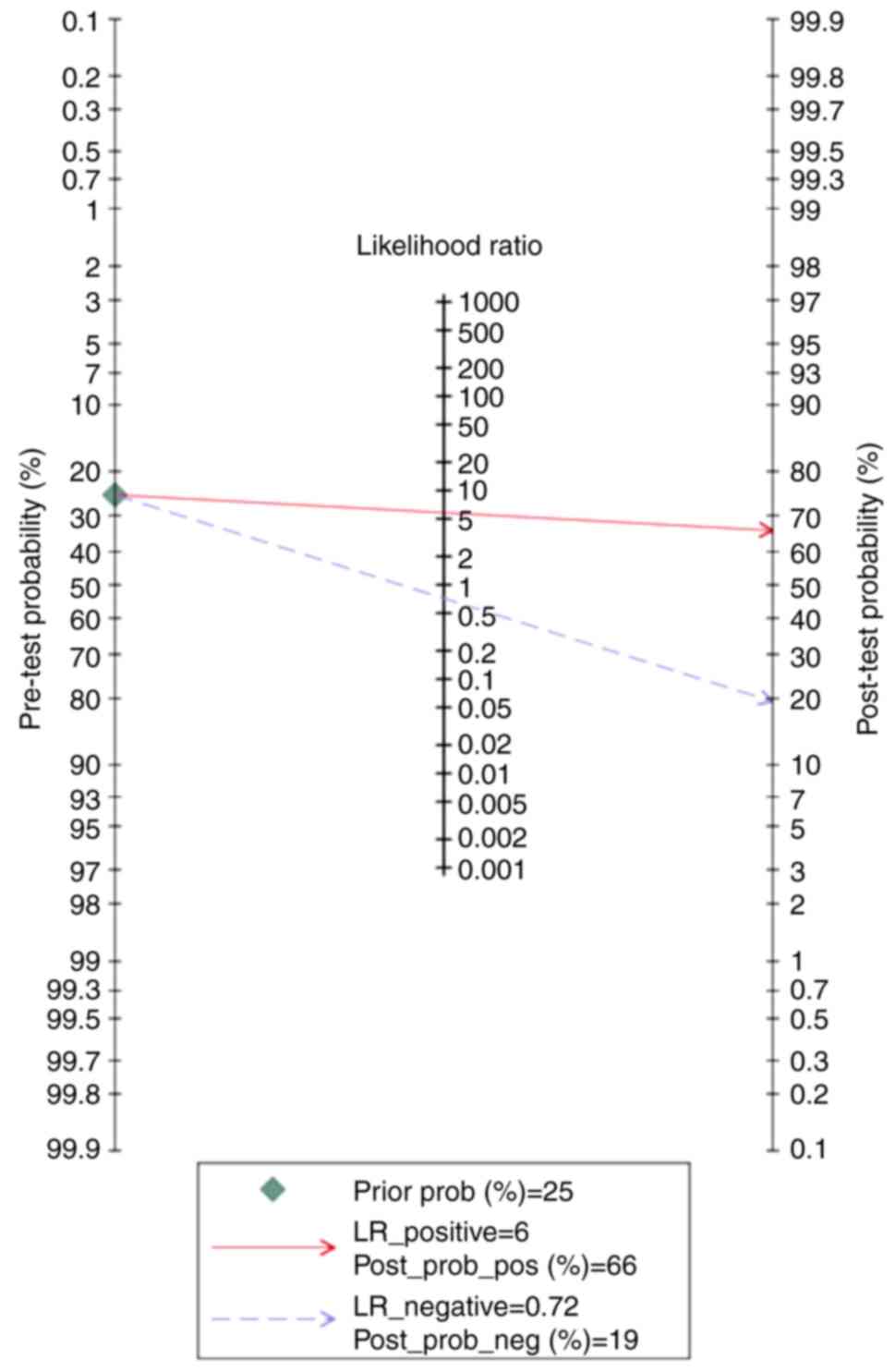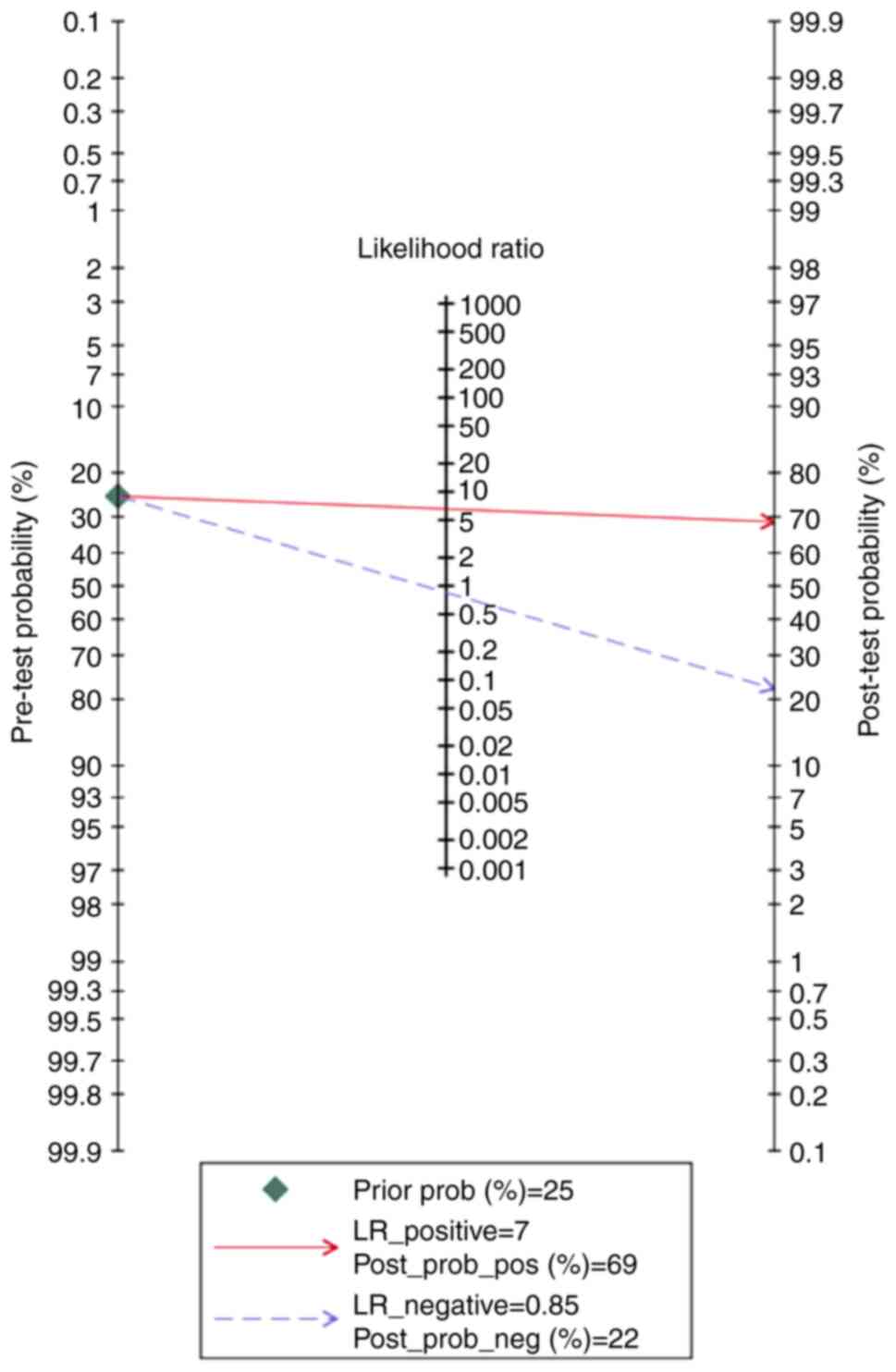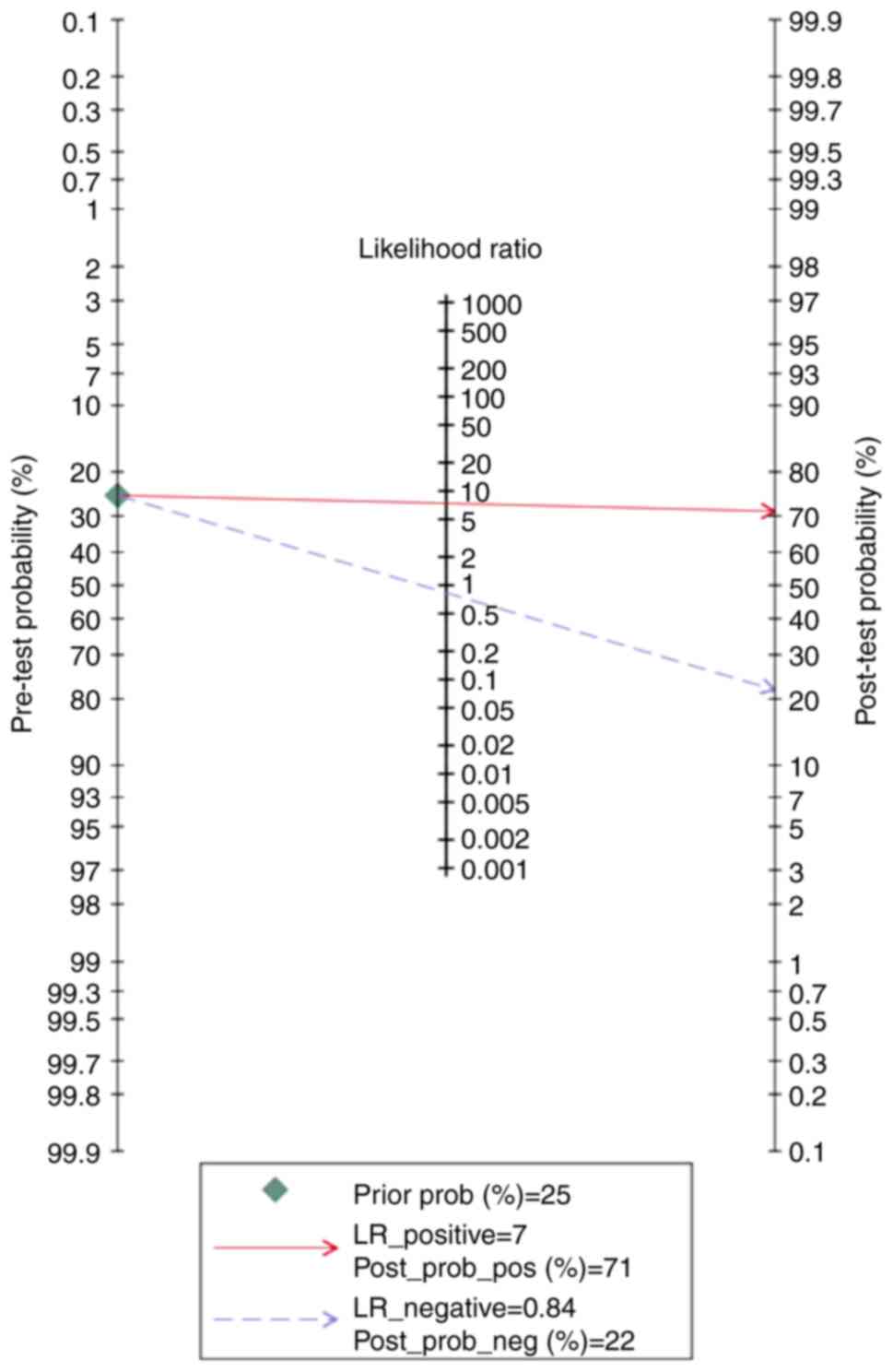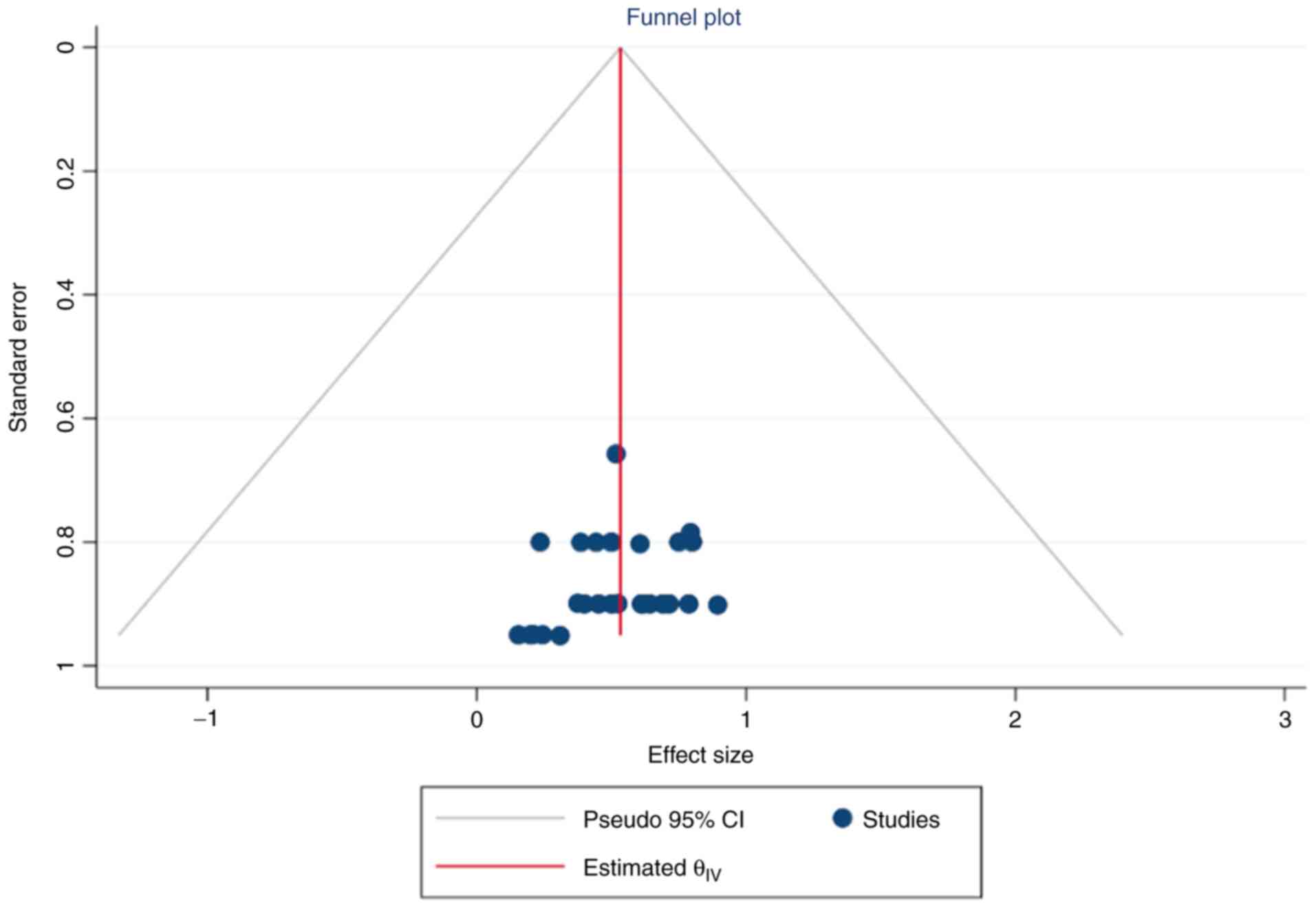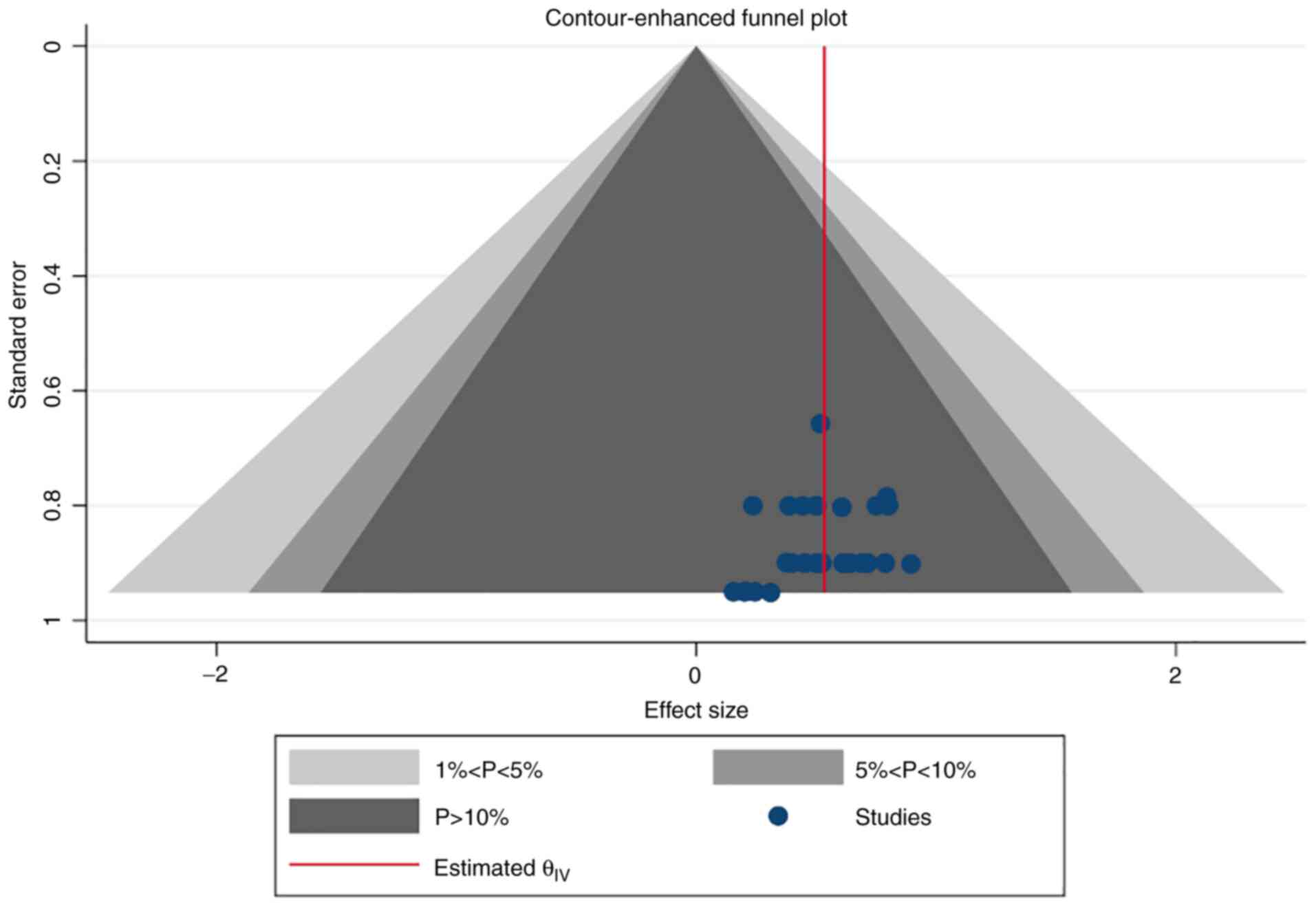|
1
|
Ananth CV, Keyes KM and Wapner RJ:
Pre-eclampsia rates in the United States, 1980-2010:
Age-period-cohort analysis. BMJ. 347(f6564)2013.PubMed/NCBI View Article : Google Scholar
|
|
2
|
Barondes SH, Castronovo V, Cooper DN,
Cummings RD, Drickamer K, Feizi T, Gitt MA, Hirabayashi J, Hughes
C, Kasai K, et al: Galectins: A family of animal
beta-galactoside-binding lectins. Cell. 76:597–598. 1994.PubMed/NCBI View Article : Google Scholar
|
|
3
|
Kang HG, Kim DH, Kim SJ, Cho Y, Jung J,
Jang W and Chun KH: Galectin-3 supports stemness in ovarian cancer
stem cells by activation of the Notch1 intracellular domain.
Oncotarget. 7:68229–68241. 2016.PubMed/NCBI View Article : Google Scholar
|
|
4
|
Sammar M, Drobnjak T, Mandala M,
Gizurarson S, Huppertz B and Meiri H: Galectin 13 (PP13)
facilitates remodeling and structural stabilization of maternal
vessels during pregnancy. Int J Mol Sci. 20(3192)2019.PubMed/NCBI View Article : Google Scholar
|
|
5
|
Page MJ, Moher D, Bossuyt PM, Boutron I,
Hoffmann TC, Mulrow CD, Shamseer L, Tetzlaff JM, Akl EA, Brennan
SE, et al: PRISMA 2020 explanation and elaboration: Updated
guidance and exemplars for reporting systematic reviews. BMJ.
372(n160)2021.PubMed/NCBI View
Article : Google Scholar
|
|
6
|
National Center for Biotechnology
Information (NCBI). PubMed database. https://pubmed.ncbi.nlm.nih.gov/. Accessed February
28, 2021.
|
|
7
|
Clarivate. Web of Science database.
https://clarivate.com/webofsciencegroup/solutions/web-of-science/.
Accessed on 28.02.2021.
|
|
8
|
Elsevier. Scopus database. https://www.scopus.com/home.uri. Accessed
February 28, 2021.
|
|
9
|
Elsevier. Embase database. https://www.embase.com/landing?status=grey. Accessed
February 28, 2021.
|
|
10
|
Clarivate. BIOSISCitationIndex. https://clarivate.com/webofsciencegroup/solutions/webodscience-biosis-citation-index/.
Accessed February 28, 2021.
|
|
11
|
Cochrane Library. Cochrane database.
https://www.cochranelibrary.com/.
Accessed February 28, 2021.
|
|
12
|
Whiting P, Rutjes AW, Reitsma JB, Bossuyt
PM and Kleijnen J: The development of QUADAS: A tool for the
quality assessment of studies of diagnostic accuracy included in
systematic reviews. BMC Med Res Methodol. 3(25)2003.PubMed/NCBI View Article : Google Scholar
|
|
13
|
Whiting PF, Rutjes AW, Westwood ME,
Mallett S, Deeks JJ, Reitsma JB, Leeflang MM, Sterne JA and Bossuyt
PM: QUADAS-2 Group. QUADAS-2: A revised tool for the quality
assessment of diagnostic accuracy studies. Ann Intern Med.
155:529–536. 2011.PubMed/NCBI View Article : Google Scholar
|
|
14
|
DerSimonian R and Laird N: Meta-analysis
in clinical trials revisited. Contemp Clin Trials. 45:139–145.
2015.PubMed/NCBI View Article : Google Scholar
|
|
15
|
Spencer K, Cowans NJ, Chefetz I, Tal J and
Meiri H: First-trimester maternal serum PP-13, PAPP-A and
second-trimester uterine artery Doppler pulsatility index as
markers of pre-eclampsia. Ultrasound Obstet Gynecol. 29:128–134.
2007.PubMed/NCBI View
Article : Google Scholar
|
|
16
|
Chafetz I, Kuhnreich I, Sammar M, Tal Y,
Gibor Y, Meiri H, Cuckle H and Wolf M: First-trimester placental
protein 13 screening for preeclampsia and intrauterine growth
restriction. Am J Obstet Gynecol. 197:35.e1–e7. 2007.PubMed/NCBI View Article : Google Scholar
|
|
17
|
Gonen R, Shahar R, Grimpel YI, Chefetz I,
Sammar M, Meiri H and Gibor Y: Placental protein 13 as an early
marker for pre-eclampsia: A prospective longitudinal study. BJOG.
115:1465–1472. 2008.PubMed/NCBI View Article : Google Scholar
|
|
18
|
Khalil A, Cowans NJ, Spencer K, Goichman
S, Meiri H and Harrington K: First trimester maternal serum
placental protein 13 for the prediction of pre-eclampsia in women
with a priori high risk. Prenat Diagn. 29:781–789. 2009.PubMed/NCBI View
Article : Google Scholar
|
|
19
|
Akolekar R, Syngelaki A, Beta J,
Kocylowski R and Nicolaides KH: Maternal serum placental protein 13
at 11-13 weeks of gestation in preeclampsia. Prenat Diagn.
29:1103–1108. 2009.PubMed/NCBI View
Article : Google Scholar
|
|
20
|
Khalil A, Cowans NJ, Spencer K, Goichman
S, Meiri H and Harrington K: First-trimester markers for the
prediction of pre-eclampsia in women with a-priori high risk.
Ultrasound Obstet Gynecol. 35:671–679. 2010.PubMed/NCBI View
Article : Google Scholar
|
|
21
|
Wortelboer EJ, Koster MP, Cuckle HS,
Stoutenbeek PH, Schielen PC and Visser GH: First-trimester
placental protein 13 and placental growth factor: Markers for
identification of women destined to develop early-onset
pre-eclampsia. BJOG. 117:1384–1389. 2010.PubMed/NCBI View Article : Google Scholar
|
|
22
|
Odibo AO, Zhong Y, Goetzinger KR, Odibo L,
Bick JL, Bower CR and Nelson DM: First-trimester placental protein
13, PAPP-A, uterine artery Doppler and maternal characteristics in
the prediction of pre-eclampsia. Placenta. 32:598–602.
2011.PubMed/NCBI View Article : Google Scholar
|
|
23
|
Schneuer FJ, Nassar N, Khambalia AZ,
Tasevski V, Guilbert C, Ashton AW, Morris JM and Roberts CL: First
trimester screening of maternal placental protein 13 for predicting
preeclampsia and small for gestational age: In-house study and
systematic review. Placenta. 33:735–740. 2012.PubMed/NCBI View Article : Google Scholar
|
|
24
|
Deurloo KL, Linskens IH, Heymans MW,
Heijboer AC, Blankenstein MA and van Vugt JM: ADAM12s and PP13 as
first trimester screening markers for adverse pregnancy outcome.
Clin Chem Lab Med. 51:1279–1284. 2013.PubMed/NCBI View Article : Google Scholar
|
|
25
|
Meiri H, Sammar M, Herzog A, Grimpel YI,
Fihaman G, Cohen A, Kivity V, Sharabi-Nov A and Gonnen R:
Prediction of preeclampsia by placental protein 13 and background
risk factors and its prevention by aspirin. J Perinat Med.
42:591–601. 2014.PubMed/NCBI View Article : Google Scholar
|
|
26
|
Luo Q and Han X: Second-trimester maternal
serum markers in the prediction of preeclampsia. J Perinat Med.
45:809–816. 2017.PubMed/NCBI View Article : Google Scholar
|
|
27
|
Asiltas B, Surmen-Gur E and Uncu G:
Prediction of first-trimester preeclampsia: Relevance of the
oxidative stress marker MDA in a combination model with PP-13,
PAPP-A and beta-HCG. Pathophysiology. 25:131–135. 2018.PubMed/NCBI View Article : Google Scholar
|
|
28
|
Soongsatitanon A and Phupong V: Prediction
of preeclampsia using first trimester placental protein 13 and
uterine artery Doppler. J Matern Fetal Neonatal Med: Nov 16, 2020
(Epub ahead of print).
|
|
29
|
North RA, McCowan LM, Dekker GA, Poston L,
Chan EH, Stewart AW, Black MA, Taylor RS, Walker JJ, Baker PN and
Kenny LC: Clinical risk prediction for pre-eclampsia in nulliparous
women: Development of model in international prospective cohort.
BMJ. 342(d1875)2011.PubMed/NCBI View Article : Google Scholar
|
|
30
|
Kliman HJ, Sammar M, Grimpel YI, Lynch SK,
Milano KM, Pick E, Bejar J, Arad A, Lee JJ, Meiri H and Gonen R:
Placental protein 13 and decidual zones of necrosis: An immunologic
diversion that may be linked to preeclampsia. Reprod Sci. 19:16–30.
2012.PubMed/NCBI View Article : Google Scholar
|
|
31
|
Redman CW, Sargent IL and Staff AC: IFPA
Senior award lecture: Making sense of pre-eclampsia-two placental
causes of preeclampsia? Placenta. 35 (Suppl 1):S20–S25.
2014.PubMed/NCBI View Article : Google Scholar
|
|
32
|
Monte S: Biochemical markers for
prediction of preclampsia: Review of the literature. J Prenat Med.
5:69–77. 2011.PubMed/NCBI
|















